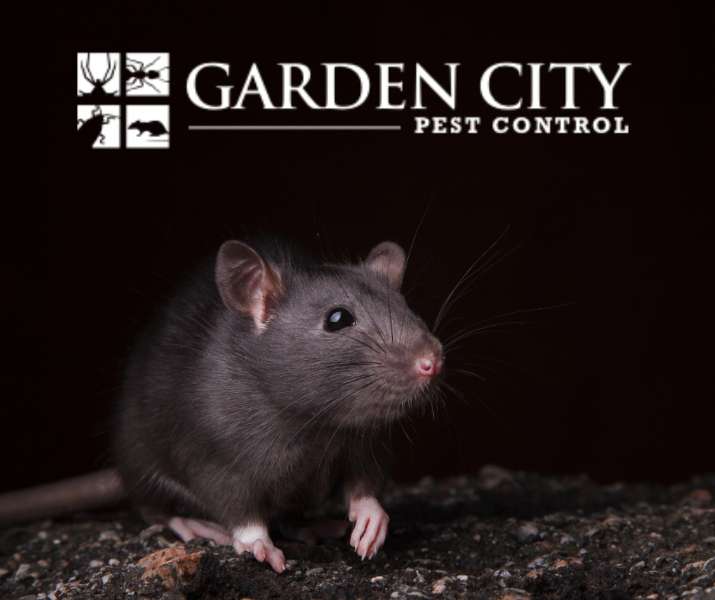In July 2020, the province of British Columbia implemented a ban on certain types of rodenticides, commonly known as rat and mouse poisons. This decision was made in response to concerns about the impact of these chemicals on the environment and wildlife. A year after the ban was put into effect, the pest-control industry in British Columbia has seen a significant shift in demand for their services. This article will explore the impact of the provincial ban on rodenticides on pest-control businesses in British Columbia, including the increase in demand for alternative methods of rodent control.
Background on the Provincial Ban on Rodenticides
The ban on rodenticides in British Columbia was implemented on July 1, 2020, by the Ministry of Environment and Climate Change Strategy. The decision was made after extensive research and consultation with experts, including pest-control businesses, environmental organizations, and government agencies. The ban specifically targeted second-generation anticoagulant rodenticides (SGARs), which are known to be highly toxic to wildlife and the environment.
Increased Demand for Rodent Control Services
The rat and mouse population in British Columbia has been steadily increasing in recent years, and the ban on rodenticides has only exacerbated the issue. Without the use of these chemicals, pest-control businesses have seen a significant increase in demand for their services. According to a survey conducted by the Canadian Pest Management Association, 76% of pest-control businesses in British Columbia reported an increase in calls for rodent control services since the ban was implemented.
The ban on rodenticides has also led to challenges for pest-control businesses in meeting this increased demand. With limited resources and trained personnel, some businesses have struggled to keep up with the influx of requests for their services.
Alternative Methods of Rodent Control
In response to the ban on rodenticides, pest-control businesses have had to adapt and find alternative methods of rodent control. These methods include trapping, exclusion, and the use of natural predators such as cats and terriers. While these methods may not be as convenient as using rodenticides, they are proven to be effective in controlling rodent populations.
One advantage of these alternative methods is that they do not pose a threat to non-target animals, such as birds of prey and other wildlife, which can become sick or die from consuming poisoned rodents. However, these methods also have their limitations, such as requiring more time and resources to implement and potentially being less effective in large-scale infestations.
Despite these challenges, some pest-control businesses in British Columbia have successfully implemented alternative methods and have seen positive results. For example, one business has seen success by using a combination of trapping and exclusion methods, ensuring that rodents cannot re-enter a property once they have been removed.
Impact on the Environment and Wildlife
The ban on rodenticides was primarily implemented due to concerns about the impact of these chemicals on the environment and wildlife. SGARs are highly toxic and can remain in the environment for a long time, posing a threat to non-target animals. By banning these chemicals, the government hopes to protect the environment and the animals that inhabit it.
While the ban has addressed these concerns, there are still potential long-term effects on the environment and wildlife. Without the use of rodenticides, the rat and mouse population may continue to grow, potentially leading to competition for resources and the spread of diseases. This could have a ripple effect on the ecosystem and impact other species.
To minimize their impact on the environment and wildlife, pest-control businesses have taken steps to properly dispose of rodent carcasses and use alternative methods that are less harmful to non-target animals.
Challenges Faced by Pest-Control Businesses
The ban on rodenticides has not only affected the rat and mouse population and pest-control businesses, but it has also had a financial impact on these businesses. Without the use of rodenticides, businesses have had to invest in alternative methods, which can be more time-consuming and costly. This has led to some businesses increasing their prices, which may be a barrier for some customers.
Additionally, implementing alternative methods also requires proper training and resources, which can be a challenge for smaller pest-control businesses. There is also increased competition among businesses due to the high demand for rodent control services, making it challenging for some businesses to secure contracts.
To overcome these challenges, some businesses have invested in training their staff and purchasing necessary equipment, while others have formed partnerships with other businesses to share resources and expertise.
Public Perception and Education
The ban on rodenticides has also had an impact on the public perception of pest-control businesses. Some people may view these businesses as being less effective without the use of rodenticides, while others may have concerns about the potential harm to the environment and wildlife. However, it is essential to educate the public about the reasons for the ban and the alternative methods available.
Pest-control businesses have taken on the responsibility of educating the public about the ban and the importance of using alternative methods. This includes providing information on their websites and social media platforms, as well as directly communicating with customers.
Future Outlook
As the ban on rodenticides in British Columbia approaches its one-year mark, there is still uncertainty about its future. While the ban has been effective in addressing environmental and wildlife concerns, it has also presented challenges for pest-control businesses. There is a possibility of changes to the ban, which could affect the future of these businesses.
Looking ahead, it is crucial for pest-control businesses to continue researching and developing alternative methods of rodent control. This will not only benefit the environment and wildlife but also ensure the success and sustainability of these businesses. A year after a provincial ban on certain rodenticides, pest-control businesses in British Columbia are facing increased demand to control the rat and mouse population. The ban was implemented due to the harmful effects of the poison on wildlife through bioaccumulation. While some experts attribute the rise in rat population to the ban, others point to factors such as abundant food sources, including birdseed and unattended garbage.
The increase in rat population is also linked to human behavior, such as home food production, composting, and keeping backyard chickens. Rats can have multiple litters per year, with the spring and fall litters being the largest due to seasonal food abundance. Additionally, rats can reach sexual maturity in as little as six weeks, further contributing to population growth.The ban has led to a shift in pest-control methods, with trapping becoming a primary approach.
However, this is more time-intensive and costly for homeowners compared to using rodenticides. The effectiveness of cats in controlling rat populations is limited, as they typically catch only the youngest and oldest rats. Moreover, feeding cats can inadvertently contribute to the rat problem.The lack of a comprehensive rat-sighting reporting system makes it challenging for wildlife biologists to assess population growth accurately.
Homeowners are advised to take measures to mitigate rat problems, such as eliminating food and water sources, making properties less inviting for rodents, and considering alternative rodent-control methods.In conclusion, managing rat populations in urban areas is a complex issue that requires a multifaceted approach. Addressing the problem effectively involves considering various factors and implementing innovative solutions to ensure long-term control of rat populations.
The ban on rodenticides in British Columbia has had a significant impact on the pest-control industry, leading to increased demand for alternative methods of rodent control. While there have been challenges, businesses have adapted and found success in implementing these methods. As the ban continues, it is essential to continue educating the public and investing in research and development to ensure the long-term success of pest-control businesses in British Columbia.



































